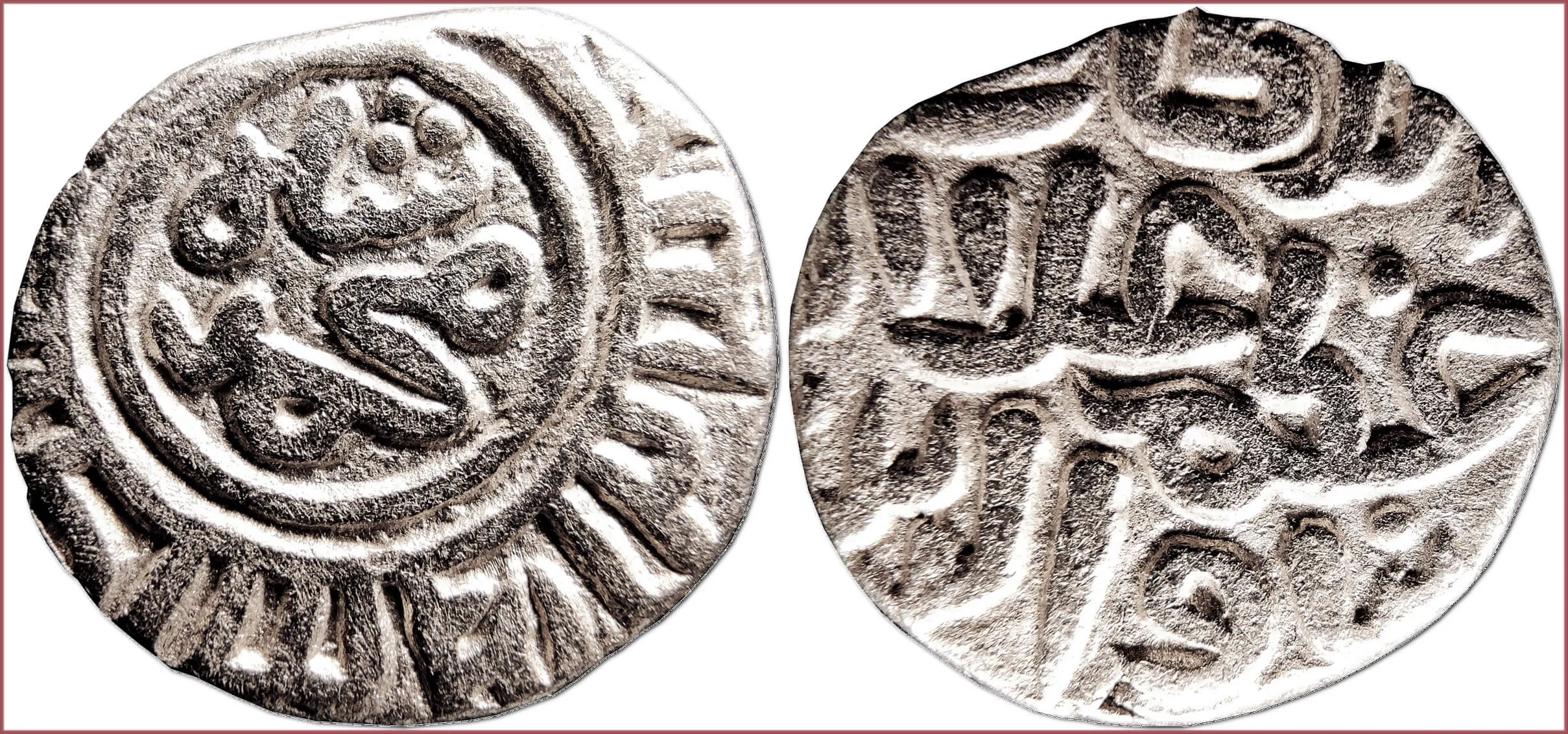GANI: COIN OF INDIA (DELHI SULTANATE)
2 gani, 1296-1316: Delhi Sultanate (India)
ND (no date).
Ruler: Alauddin Khalji (Alaud-Dīn Khaljī) — 13th Sultan of Delhi that ruled during 1296-1316; successfully fended off several Mongol invasions of India.
The legend of the coin is a combination of Nagari and Persian inscriptions: title and name of the ruler.
شاه محمد + श्री सुल्तान अलाउद्दीन + السلطان الاعظم على الدنیا و الدین: Shah Muhammad + Sri Sultan Alauddin + The greatest authority over the world and religion.
- Silver (billon): 17 mm - 3.24 g
- Reference price: 10$
COIN GANI — WHERE & WHEN (coins catalog: by names & emitents)
- DELHI SULTANATE (13th-14th centuries): gani
- BAHMANI SULTANATE (14th-16th centuries): gani
GANI as coin name.
Gani — historical coin of South India. It was issued during the 13th-16th centuries by the neighboring Bahmani Sultanate and Delhi Sultanate.
There is information about different denominations: 1/6, 1/3, 1/2, 2/3, 1, 1⅔, 2, 4, 6, 8, 10 gani. Coins were made of copper and billon.
Examining the monetary systems of the mentioned territories, we come across a number of coin denominations, among which tanka and gani are most often found. How did they relate to each other? — It was not possible to find unambiguous reliable data. Some sources speak of the identity of these names, while others claim that tanka replaced gani.
Almost all coins nominated in gani contain only legends in Arabic script. There are no images.
Numismatic catalogs also mention derivative forms of the gani coin: sawagani and yakgani.
The term "gani" is extremely popular in India. It may come from several ancient Indian languages and have many different unrelated meanings.
For example (one of the versions): gani (Kannada "गानी") — large excavation made in the earth, from which to extract metallic ores, coal, precious stones, salt or certain other minerals.
Which of the versions of the origin of the name of this coin is correct — it was not possible to find out.











